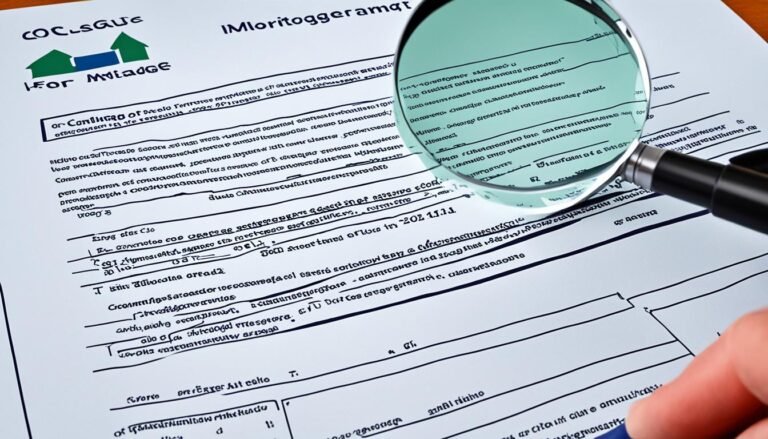MiFID II Compliance: A Guide for Irish Investment Firms
Since 2018, the Central Bank of Ireland has focused on MiFID II Regulations. These include seven editions of its Investment Firms Q&A. This shows the real work put in to help Irish investment firms follow strict rules. MiFID II came into place on January 3, 2018. It replaced MiFID I, which had been the norm since 2007.
MiFID II affects different groups in finance, like investment firms and broker-dealers. It makes them follow steps that make things clearer and protect investors better. For example, MiFID II needs more details in reports and includes more types of financial products to be checked. This makes the whole market more open.
For Irish investment firms, sticking to MiFID II rules is very important. It helps keep the market fair and makes clients trust them more. Doing this also helps firms manage risks, follow good business rules, and stay ahead in a changing financial world. Now, we’ll look deeper into what MiFID II means for these firms.
Key Takeaways
- MiFID II became active on January 3, 2018, adding more rules to obey.
- The Central Bank of Ireland has given out lots of Q&As to help firms follow MiFID II.
- MiFID II makes it need more information about deals and covers more financial products.
- Following these rules is key to handling risks and making sure clients trust you.
- It calls for very detailed reports on transactions and asks for stronger business rules.
The Importance of MiFID II Regulations for Irish Investment Firms
MiFID II rules are key for Irish investment firms. They bring more transparency, honesty, and protect investors. This creates a strong financial rule system.
Overview of MiFID II Regulations
MiFID II changes how Ireland manages assets. Firms must get approval from the Central Bank. If they don’t follow, they face big fines. They must be careful to follow both MiFID II and Irish laws.
Impact on Investment Management and Practices
MiFID II greatly changes how investments are managed and traded. It demands clearer reports to ESMA. This affects automated trading and protects consumers from risky investments like binary options. Irish management firms also have to share more information.
Ensuring Financial Compliance
To work well and legally, investment firms must comply with MiFID II. The rules apply to firms outside the EU that work as hands-on managers. They must ensure all rules, including for the safety of investors are followed. Not following the rules leads to serious penalties.
MiFID II has a big impact on how Irish investment firms work. It changes how regulations, operations, and compliance are handled.
Understanding the Regulatory Framework
The rules for investment firms in Ireland are important. They make sure the market is fair and protect investors. These rules come from the Central Bank of Ireland, which keeps an eye on many things. It follows the MiFID II rules closely and makes sure firms do too.
Role of the Central Bank of Ireland
The Central Bank of Ireland watches over how financial markets and companies behave. It set out new instructions for handling client assets on July 4, 2023. These rules had to be followed starting July 1, 2023, and help ensure client funds are safe.
They also made big changes about how securities are held. For new stocks, these rules started on January 1, 2023. For old stocks, the changes began on January 1, 2025. This ongoing watch ensures firms meet strong regulatory rules.
Corporate Governance Requirements
Investment firms must have strong corporate governance under MiFID II. The Central Bank of Ireland enforces these rules to make firms more reliable, especially those with higher risk. New rules like the IFR and IFD mean firms must be more open and responsible. This includes making sure top managers and directors are fully dedicated and skilled in their jobs.
Supervision and Enforcement by the Central Bank
Watching and enforcing rules is a big part of what the Central Bank does. It uses checks and rules like the IFR/IFD to keep firms in line. For example, ESMA wants to make sure client assets are safe when lending stocks. This shows a close eye is kept on firms, even after Brexit.
After Brexit, branches in third countries have new rules to follow. The bank has to change how it gives out permits and keeps an eye on firms. This careful approach shows the bank wants to keep the market fair and safe.
| Publication Date | Title | Description |
|---|---|---|
| 4 July 2023 | MCAR Guidance | Guidance on Monthly Client Assets Report |
| 7 July 2023 | SI no 353 | Requirement for dematerialisation of applicable securities |
| 11 July 2023 | ESMA MiFID II Advice Guidance | Updated definition and tests for investment advice |
| 12 July 2023 | ESMA Report | Report on risks in securities lending for retail clients |
| 19 July 2023 | ESMA Final Report | Proposed changes to mitigate liquidity stress amid market turmoil |
MiFID II Compliance: A Strategic Approach for Firms
To follow MiFID II rules, Irish investment firms need a strong compliance strategy. The rules are always changing, so a strategic approach is crucial to keep up. It’s key for senior management to play a big part. They must lead in following the rules and keep up with updates.
It’s very important to have a solid compliance plan. This plan should be flexible, ready to follow MiFID II rules and any new ones. For example, ESMA’s 2021 review on product rules showed the need for all firms to follow the same steps. This keeps everyone in line with MiFID II without any confusion.
Keeping the staff well-trained is vital too. Regular training helps employees understand and follow MiFID II better. As guidelines are posted on ESMA’s site, it’s crucial to always check for updates.
For a good example of a careful compliance plan, look at the response to ESMA’s paper on MiFID II product rules. 67 replies were sent in, with 10 kept private. The report helped by updating 2017’s guidelines. It showed a clear way to apply MiFID II rules equally across EU investment firms.
Knowing about allowable small benefits and meeting inducement rules is also key. Firms like J.P. Morgan SE need to openly share what benefits they get. These benefits should improve service but not raise client costs. They’re focused on services like M&A, ECM, and DCM.
In closing, firms need a careful plan to meet MiFID II. It’s not just about following the rules. It’s about having every part of the firm work together to keep up the high regulatory standards.
Key Components of MiFID II Compliance
MiFID II compliance is crucial for investment firms. They must follow these rules to work well and stay legal. The directive focuses on key areas needed for good compliance. This helps protect investors and make the market work better.
Client Protection and Market Transparency
MiFID II aims to protect clients and make markets clearer. Investment firms must ensure all clients know the risks of their investments. This makes the market more open by requiring clear reporting on trades. All deals must be shared with detailed, correct data.
Role of the Compliance Officer
Compliance officers are key in MiFID II. They watch to make sure the firm follows the rules. They train staff on rules, keep policies to stop market abuse, and protect investors. Compliance officers also check that ads meet MiFID II’s strict rules, based on ESMA’s advice.
Risk Management and Capital Requirements
Managing risk and meeting capital needs is important in MiFID II. The directive has steps to lower financial risk, like needing firms to have enough capital. For instance, the Central Bank of Ireland’s MiFID Local Licences need less initial capital than before. These steps aim to keep firms and the market stable.
Transaction Reporting and Disclosures
MiFID II makes reporting transactions more detailed. Firms must report fully on financial tools and decisions, following MiFIR rules. The directive wants clear, correct records of all transactions to prevent misuse and better monitor rules. Firms have to make sure their reports are detailed and right to pass checks from regulators.
Understanding MiFID II’s important areas helps firms operate within the law. It builds trust and integrity.
Conclusion
Navigating MiFID II compliance for Irish investment firms may seem complex. However, with proper guidance, it becomes a structured, manageable process. The Central Bank of Ireland plays a crucial role. It oversees the authorization of various financial entities. This ensures these firms adhere to stringent financial compliance standards.
We highlighted key steps in the MiFID II compliance journey. These included a pre-application meeting and the submission of vital documents. We focused on the importance of understanding a firm’s model and governance. Guidance on DLT and MiFID authorizations was also key, along with specific instructions for report services.
Effective guidance for investment firms stresses EU regulations and proactive compliance. With MiFID, firms can work across the EEA by ‘passporting’. It’s vital to be well-prepared and understand requirements like transparency waivers. Knowing about post-trade information rules is also crucial.
Compliance is more than a rule; it builds trust and stability in finance. By adhering to these rules, Irish investment firms can grow and expand in the market. We hope this guide gives firms the information and confidence they need to meet the challenges of MiFID II.
Source Links
- Regulatory Requirements and Guidance for MiFID Firms
- MIFID Firms | Central Bank of Ireland
- MiFID Brochure
- Layout 1
- Ireland as a Location for MiFID Investment Firms 2024
- Ireland as a Location for MiFID Investment Firms 2023
- Financial Services Regulation and Compliance – Investment Firms July 2023
- UK/EU Investment Management Update (May 2024)
- Investment Services – Irish Legal Guide
- ESMA35-43-3448 Final report on MiFID II guidelines on product governance
- MiFID II – Revised Markets in Financial Instruments Directive (MiFID) and Markets in Financial Instruments Regulation (MiFIR) | J.P. Morgan
- Microsoft Word – 4423540_1.docx
- Financial Services Regulation and Compliance – Investment Firms May 2024
- MiFID II Directive Summary For Compliance Professionals | Blog
- Financial Services Regulation & Compliance – Cross Sectoral Oct 2017 | Nov – 2017
- Authorisation Process for MiFID Firms
- Guidance Note for Authorisation under MiFID 2021
- Asset Management & Investment Funds: Irish Practice Developments – January 2024








